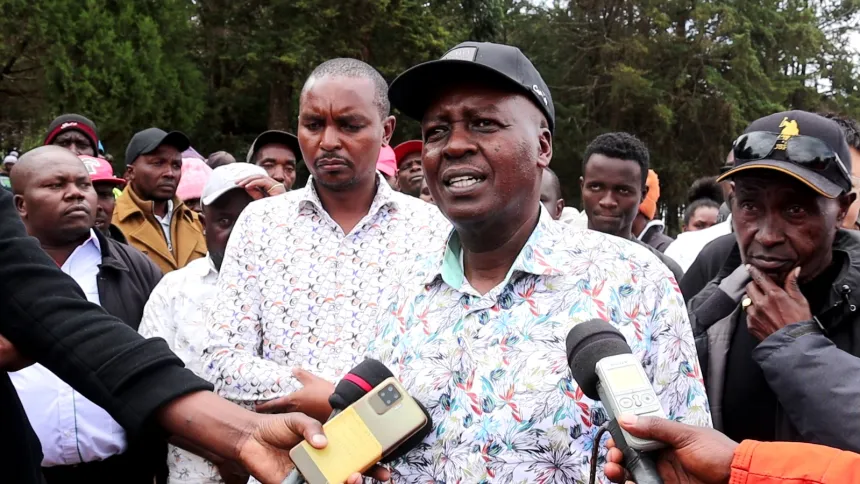The national government has released Ksh 65 billion to facilitate the completion of stalled road projects across the country, offering a major boost to infrastructure development efforts. Roads Principal Secretary Eng. Joseph Mbugua made the announcement during an inspection tour of various roadworks in Nyandarua County, a region that has recently witnessed growing public discontent over the deteriorating state of its road network.
The release of the funds comes after President William Ruto’s administration secured a Ksh 175 billion package through securitization to pay outstanding debts owed to contractors. According to Mbugua, 40% of the pending bills were cleared last month, with another 40% scheduled to be paid by the end of this month, leaving just 20% of the old debt remaining by mid-August.
“We now have good news for both the contractors and residents. The money is available, and you will soon see construction works that had stalled resume,” said Mbugua, urging contractors to move swiftly and complete the projects within their agreed timelines.
The funding has been largely enabled by proceeds from the fuel levy, which Mbugua emphasized had been instrumental in mobilizing resources. “It was not easy to mobilize these funds, but the levy has helped us a lot,” he said, cautioning against politicizing development efforts.
In Nyandarua, key roads including the Siranga–Boiman, Siranga–Charagita, and Charagita–Tumaini routes are set to be completed within two weeks. The improved infrastructure is expected to significantly benefit farmers in the agriculturally rich county, where poor roads have often led to massive post-harvest losses.
Local MPs Hon. Michael Muchira (Ol Jororok) and Hon. David Kiaraho (Ol Kalou), who accompanied the PS, dismissed claims that contractors had abandoned project sites. They clarified that initial delays were due to sequencing issues and funding gaps, both of which have now been resolved.
With the renewed investment in infrastructure, the government aims to unlock economic opportunities, especially in food-producing regions like Nyandarua, and restore public confidence in its development agenda.

